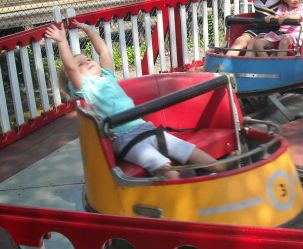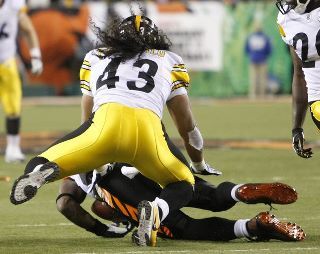Post by misty on Jan 6, 2007 12:01:49 GMT -5
Charlie Girl..........................Thread Started on May 7, 2006, 12:50pm
www.add-adhd.org/eye_doctors_eye_doctor.html
Printer-friendly Version
Choosing An Eye Doctor
By Patricia S. Lemer, M.Ed., NCC
Executive Director, Developmental Delay Registry (DDR)
...Pediatric Optometrist or Pediatric Ophthalmologist?
How to choose an eye doctor for a child who is having problems with learning, reading and behavior or who has been diagnosed with LD, learning disabilities, developmental delays, attention deficit disorder (ADD), attention deficit hyperactivity disorder (attention deficit hyperactive disorder, adhd, AD/HD, hyperactive), dyslexia or autism.
A parent recently asked why I recommend that her child be examined by a pediatric optometrist rather than a pediatric ophthalmologist. The answer comes from my understanding of these two types of eye doctors and my personal experience.
Both types of eye doctors examine and prescribe glasses, diagnose and treat eye disease, and can evaluate how well a person uses the eyes together. However, each profession is unique.
Ophthalmologists are trained to do surgery. I credit one with saving the eyesight of my daughter, who at age five sustained an eye injury. Optometrists are schooled in the functional (or developmental) aspects of vision. They are more apt to use lenses, prisms and vision therapy to enhance and improve visual function. These interventions often improve children's visual, academic and other abilities.
Eyesight vs. Vision
Eyesight and vision are not synonymous. Eyesight is the sharpness of the image seen by the eye. Vision is the ability to focus on and comprehend that which is seen. Research has shown that while most children with special needs do not have eyesight problems, many have visual dysfunction. If a child has motor delays, vestibular difficulties, or health problems, vision is often compromised.
The American Optometric Association (AOA) recommends that children have vision examinations by six months. A good eye doctor can test many aspects of function at this young age and quickly effect changes with intervention.
Most school vision screenings check only eyesight - only at twenty feet, not at reading distance. They rarely tell us whether a child has a clear image at nearpoint or how the eyes work together. The only information they provide is whether a child can see the blackboard. Many vision problems thus go undetected when parents have false security and brag, "My kid's eyes are 20/20!" To learn what visual skills need to be tested as part of a child's comprehensive Eye Exam, visit the eye exam page at children-special-needs.org.
Vision is Learned
Vision--like reading, mathematics and language--is learned. Giving meaning to what is seen begins at birth. In the developmental hierarchy, infants move without purpose, while their eyes learn how to work as a team, to sustain focus. Toddlers use movement to drive vision, such as shaking a rattle for its sound before looking at it. Finally, children can visualize without movement. Thus, for children to be successful in school, vision must purposefully direct their actions.
Vision as the Primary Sense
We hear a great deal about individual learning styles."My child is a kinesthetic learner," a mother told me. She meant that her child is still using touch and movement to get information about the world. From a developmental standpoint, this learning style is more primitive than getting information visually.
Well-functioning individuals store all types of sensory images and can visualize and retrieve them upon demand. They no longer need to touch and move to experience their world. Vision directs their thinking, organization, listening and actions.
Vision Lays the Foundation for Language & Relationships
Vision plays a major role in language and social-emotional development. Children with language delays, attention deficits, pervasive developmental disorders and autism all have inefficient visual systems. If a toddler is not speaking or relating to others, a vision evaluation is essential.
A developmental optometrist can prescribe therapeutic and pleasurable activities to be done at home, during floor time, occupational and language therapy, or at day care. Combining the visual system with touch, movement, audition and social experiences benefits all areas. Begin Where They Are, a workbook designed by vision therapists and available through the DDR (see link below), has good ideas for pre-verbal children and toddlers.
Making the Right Choice
Scientific evidence indicates that interventions such as vision therapy, used by behavioral optometrists, work. If your child has developmental delays of any kind, choose to have all aspects of vision evaluated. The Doctor Directory can help you locate eye care professionals qualified to evaluate even the most difficult, non-verbal children.
The American Optometric Association publishes a monograph, The Efficacy of Optometric Vision Therapy, containing 238 references; it is available free of charge from the Developmental Delay Registry.
The Developmental Delay Registry is a not-for-profit organization whose mission is to educate parents and professionals who support children with developmental delays about healthy options for treating the whole child. Telephone: 301-652-2263
If you click on the link, after the article there is an excerp from a book. I checked that out and its really informative, definitely worth reading.
www.add-adhd.org/eye_doctors_eye_doctor.html
Printer-friendly Version
Choosing An Eye Doctor
By Patricia S. Lemer, M.Ed., NCC
Executive Director, Developmental Delay Registry (DDR)
...Pediatric Optometrist or Pediatric Ophthalmologist?
How to choose an eye doctor for a child who is having problems with learning, reading and behavior or who has been diagnosed with LD, learning disabilities, developmental delays, attention deficit disorder (ADD), attention deficit hyperactivity disorder (attention deficit hyperactive disorder, adhd, AD/HD, hyperactive), dyslexia or autism.
A parent recently asked why I recommend that her child be examined by a pediatric optometrist rather than a pediatric ophthalmologist. The answer comes from my understanding of these two types of eye doctors and my personal experience.
Both types of eye doctors examine and prescribe glasses, diagnose and treat eye disease, and can evaluate how well a person uses the eyes together. However, each profession is unique.
Ophthalmologists are trained to do surgery. I credit one with saving the eyesight of my daughter, who at age five sustained an eye injury. Optometrists are schooled in the functional (or developmental) aspects of vision. They are more apt to use lenses, prisms and vision therapy to enhance and improve visual function. These interventions often improve children's visual, academic and other abilities.
Eyesight vs. Vision
Eyesight and vision are not synonymous. Eyesight is the sharpness of the image seen by the eye. Vision is the ability to focus on and comprehend that which is seen. Research has shown that while most children with special needs do not have eyesight problems, many have visual dysfunction. If a child has motor delays, vestibular difficulties, or health problems, vision is often compromised.
The American Optometric Association (AOA) recommends that children have vision examinations by six months. A good eye doctor can test many aspects of function at this young age and quickly effect changes with intervention.
Most school vision screenings check only eyesight - only at twenty feet, not at reading distance. They rarely tell us whether a child has a clear image at nearpoint or how the eyes work together. The only information they provide is whether a child can see the blackboard. Many vision problems thus go undetected when parents have false security and brag, "My kid's eyes are 20/20!" To learn what visual skills need to be tested as part of a child's comprehensive Eye Exam, visit the eye exam page at children-special-needs.org.
Vision is Learned
Vision--like reading, mathematics and language--is learned. Giving meaning to what is seen begins at birth. In the developmental hierarchy, infants move without purpose, while their eyes learn how to work as a team, to sustain focus. Toddlers use movement to drive vision, such as shaking a rattle for its sound before looking at it. Finally, children can visualize without movement. Thus, for children to be successful in school, vision must purposefully direct their actions.
Vision as the Primary Sense
We hear a great deal about individual learning styles."My child is a kinesthetic learner," a mother told me. She meant that her child is still using touch and movement to get information about the world. From a developmental standpoint, this learning style is more primitive than getting information visually.
Well-functioning individuals store all types of sensory images and can visualize and retrieve them upon demand. They no longer need to touch and move to experience their world. Vision directs their thinking, organization, listening and actions.
Vision Lays the Foundation for Language & Relationships
Vision plays a major role in language and social-emotional development. Children with language delays, attention deficits, pervasive developmental disorders and autism all have inefficient visual systems. If a toddler is not speaking or relating to others, a vision evaluation is essential.
A developmental optometrist can prescribe therapeutic and pleasurable activities to be done at home, during floor time, occupational and language therapy, or at day care. Combining the visual system with touch, movement, audition and social experiences benefits all areas. Begin Where They Are, a workbook designed by vision therapists and available through the DDR (see link below), has good ideas for pre-verbal children and toddlers.
Making the Right Choice
Scientific evidence indicates that interventions such as vision therapy, used by behavioral optometrists, work. If your child has developmental delays of any kind, choose to have all aspects of vision evaluated. The Doctor Directory can help you locate eye care professionals qualified to evaluate even the most difficult, non-verbal children.
The American Optometric Association publishes a monograph, The Efficacy of Optometric Vision Therapy, containing 238 references; it is available free of charge from the Developmental Delay Registry.
The Developmental Delay Registry is a not-for-profit organization whose mission is to educate parents and professionals who support children with developmental delays about healthy options for treating the whole child. Telephone: 301-652-2263
If you click on the link, after the article there is an excerp from a book. I checked that out and its really informative, definitely worth reading.




